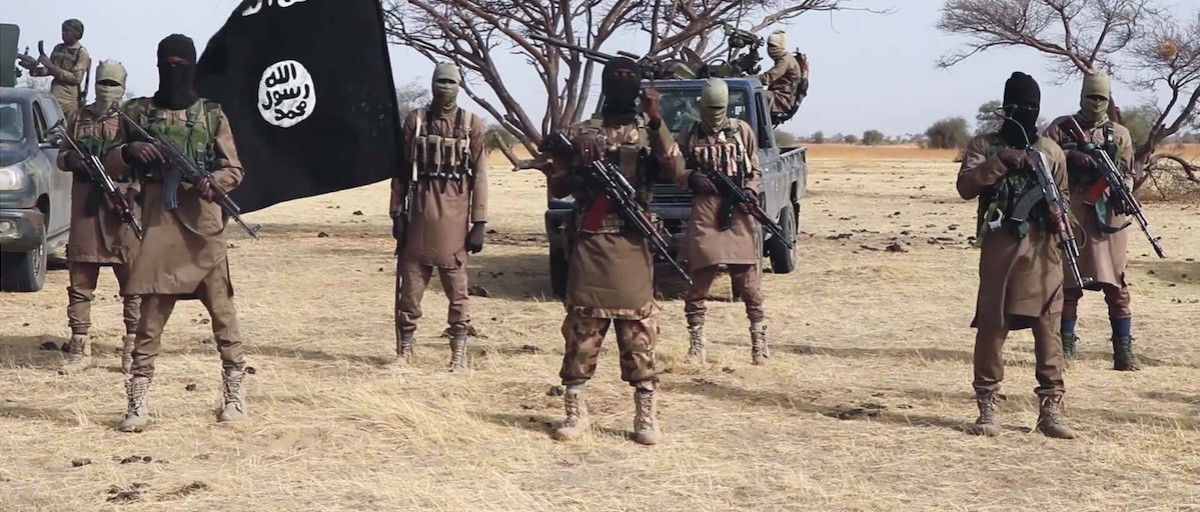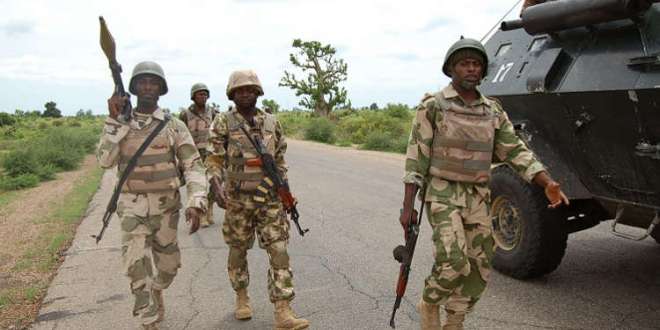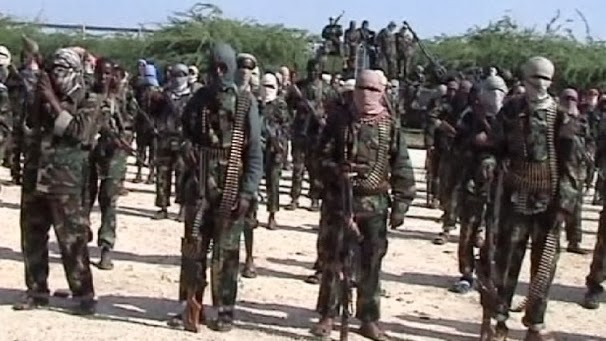Defence/Security
El-Rufai advocates women involvement in terrorism, extremism fight

The Wife of the Governor of Kaduna State, Hajia Asia El-Rufai, has called for active involvement of women in the fight against terrorism and violent extremism in the country.
El-Rufai made the call at the opening of the 2nd Leadership in Counter Terrorism and Violent Extremism Course of the Nigerian Army Resource Centre (NARC), on Monday in Abuja.
NARC is running the four-day course in collaboration with Peace Building Development Consult (PBDC) for military, security agencies and Civil Society Organisations involved in counterterrorism and extremism in Nigeria.
She said that it was important to integrate women in the security apparatuses in the fight since they form the bulk of the victims.
El-Rufai also stated that women always had insights into the cause of violent extremism because of their closeness to the boys and men that actually get involved in extremism.
According to her, unless you involve a woman and get an insight on how her child has developed overtime, you may not be able to understand what pushes somebody to put on a bomb in his body, take his own life because he wants to send a message.
“Why would somebody do that? So, women need to be involved at all stages because, one, they are the ones that day in day out are involved with the young people whether they are male or female.
“They are the ones that share during their normal interactions with one another, they hear things and when they hear these things and they don’t have avenue to inform, they may not be able to prevent anything.
“We also must effectively involve women in trainings in early warning mechanism. The child must be taught from the basic of the critical reasoning and thinking.
“Education remains the only way we can stop them from getting involved in extremism. Religious teaching should be first taught at home properly in order to discourage children from adhering to bad teachings,” she said.
El-Rufai, who is the National Coordinator of Society Against Violent Extremism (SAVE), further advocated that the various CSOs involved the fight against terrorism and violent extremism must be thoroughly trained to understand the issues.
She said that some of the CSOs that are involved in countering extremism were not doing so because of their love for humanity but because of the money involved.
According to her, a lot of people that have no idea about what violent extremism is, who are just there to make money were the ones that were mainstreamed into this fight without good knowledge.
“My advise is this, donor agencies need to make sure that who ever they sponsor, give grants to fight this are people that are actually knowledgeable in this.
“It requires insight of the human mind, of the working of communities, it requires knowledge about what affect people, it requires empathy.
“Are you somebody that is empathetic towards the sufferings of people because unless you have these qualities you won’t be able to do anything that would make positive result in the lives of people that you claim to affect,” she said.
The Inspector General of Police, Mohammed Adamu, represented by DIG Mike Ogbizi, said that leadership of various security agencies must see the need to liaise and cooperate to effectively tackle terrorism and violent extremism.
Adamu also called for good governance at all level by providing infrastructure and create jobs for the youths in order to discourage them from getting involved in crimes.
He said that the course was imperative towards developing measures to counter the menace of terrorism and violent extremism.
He also called on the religious bodies to always preach message that would not provoke violence and encourage extremism.
“It should be known that the war against terrorism is not for the security agencies only but for everybody including the media,” he said.
READ ALSO:Buhari, Osinbajo best in character, exemplary leadership -Emir of Lafia
The Director General of NARC, Maj.-Gen. Wahab Garba (rtd), disclosed that the tendency of the course was to look at how to develop the leadership capacity of the troops who are fighting the terrorists like Boko Haram.
Garba explained that it was important to bring together, the middle cadre from the military, other security agencies and NGOs so as to look at what the issues were with a view to providing solutions.
“We are too engrossed with what is happening in Nigeria but around us is not getting easier because along the Sahel, the Gulf of Guinea, every where is boiling,” he said.
Defence/Security
Why Christians Are Being Targeted in Nigeria — Majeed Dahiru Speaks

By: Fabian Apechihin
Public affairs analyst, Majeed Dahiru, has weighed in on the reports of targeted killings of Christians in Nigeria, insisting that President Bola Tinubu cannot be accused of religious bias or complicity in the country’s security challenges.
Speaking on Channels Television’s Politics Today, Dahiru said President Tinubu has shown a strong commitment to national security and unity since taking office.
“President Tinubu has not, by any stretch of the imagination, been accused of religious bigotry or having sympathy for Islamist jihadist terror groups,” he stated.
According to him, the president has mobilised the armed forces and other security agencies to combat insurgency and restore stability in violence-prone regions.
Dahiru acknowledged that attacks on Christians in some parts of the country remain worrisome but maintained that there has been visible progress in the fight against terrorism and banditry.
“Absolutely not. You can criticise him for every other thing, but not for religious bias. There is no way he would sit idly as Commander-in-Chief and allow or encourage the killing of Christians,” he added.
His comments follow heightened international concern over alleged religiously motivated killings in Nigeria.
On October 31, former U.S. President Donald Trump described the situation as a “mass slaughter,” warning that Christianity faces an existential threat in Nigeria.
Trump also directed Congressman Riley Moore and House Appropriations Chairman Tom Cole to investigate the reported killings, saying:
“I am hereby making Nigeria a ‘country of particular concern.’ But that is the least of it. When Christians, or any such group, are slaughtered as is happening in Nigeria (3,100 versus 4,476 worldwide), something must be done!”
However, the Nigerian government has dismissed the claims of a “Christian genocide,” insisting that security forces are confronting all forms of criminality without ethnic or religious bias.
Defence/Security
Genocide Allegations: Group Urges Tinubu to File Treason Charges Against Nigerians Who Reported Country to Trump

By: Fabian Apechihin
The National Patriotic Elders for Peace and Harmony of Nigeria (NPEPHN) has called on President Bola Tinubu to file treasonable felony charges against Nigerians who allegedly reported cases of Christian massacres to the United States government.
In a statement issued on Friday, the group’s president, Dr. Bature AbdulAziz, condemned the actions of those he described as “unpatriotic elements”, insisting that their reports to foreign powers amounted to a betrayal of national sovereignty.
“Nigeria is a sovereign nation with adequate laws to address the concerns of its citizens,” AbdulAziz said. “Reporting the country to another nation is nothing short of treasonable felony, and those responsible must be prosecuted.”
The elders also urged Northern governors to urgently convene a regional security meeting involving religious and ethnic leaders to address the recurring violence in the region and to present verified data on casualties to counter “false narratives” being circulated internationally.
According to AbdulAziz, the silence of Northern leaders amid U.S. President Donald Trump’s threat of military intervention in Nigeria was unacceptable. He advised them to compile accurate records of attacks and present factual evidence before relevant authorities.
“The claim that over 500,000 Christians have been killed must be supported with verifiable data,” he said. “The U.S. government knows that most of the victims of insecurity in Nigeria are Muslims, not Christians.”
Citing data from various conflict-prone regions, AbdulAziz maintained that 75 percent of victims of terrorism and communal violence since 1999 have been Muslims, noting that most of the affected areas — including Kaduna, Zamfara, Kebbi, Sokoto, Kano, Jigawa, Bauchi, Borno, and Yobe — are predominantly Muslim communities.
“These are the towns and villages that have been burned, destroyed, and displaced repeatedly,” he added.
While acknowledging that parts of the North Central zone — including Benue, Plateau, Taraba, and Kwara — have a higher Christian population, AbdulAziz said most of the conflicts in those states stem from farmer-herder clashes, where both sides suffer heavy losses.
“In many cases, Muslim herders are attacked and displaced by host communities. Their families and livestock are killed, yet no one talks about those casualties,” he noted.
AbdulAziz faulted the U.S. government for allegedly accepting “false genocide claims” without conducting independent investigations.
“It is shocking that the United States would believe such fabrications despite its advanced intelligence systems. We suspect there is a hidden political motive — possibly linked to Nigeria’s stance on the Israel-Palestine issue at the United Nations, or our government’s growing alignment with France and other nations,” he alleged.
The elder statesman reminded Donald Trump of Nigeria’s historic role in promoting peace and democracy across Africa.
“Any attack on Nigeria would destabilize several African nations that depend on her strength. We therefore appeal to President Trump to reconsider his decision,” AbdulAziz stated.
The group reiterated its support for President Tinubu’s administration and urged Nigerians to unite in defending the country’s sovereignty from “external manipulation and internal sabotage.”
Defence/Security
Retired ACP Sheriff Rabiu Blasts Northern Clerics Over Hate Preaching, Almajiri Menace

By: Fabian Apechihin
A retired Assistant Commissioner of Police, Sheriff Abubakar Rabiu, has sparked nationwide debate with a hard-hitting open letter accusing some Northern Islamic clerics of fueling division and violence through incendiary sermons.
The strongly worded message, which has gone viral across WhatsApp groups, mosque forums, and security networks, condemned what Rabiu described as the “toxic preaching culture” that has poisoned the minds of Northern youths and laid the foundation for extremist movements like Boko Haram.
“Nobody has the key to Jannatul Firdausi except Allah,” Rabiu wrote. “Yet any Tom, Dick, and Harry with shallow knowledge of Islam grabs a microphone and calls our Christian brothers ‘Arna’, ‘Kafurai’, or ‘infidels destined for hell’. This is not Islam. This is madness — and this madness gave birth to Boko Haram.”
Rabiu, who once served as Chief Security Officer to former Adamawa Governor Murtala Nyako, said Nigeria’s greatest internal threats are hate preaching and the Almajiri system, which he described as a breeding ground for radicalization.
“An idle mind is the devil’s workshop. Those street children begging today are tomorrow’s recruits and foot soldiers for every terrorist group promising paradise for killing ‘infidels’,” he warned.
Turning his criticism inward, Rabiu questioned why Northern leaders were quick to blame Donald Trump for placing Nigeria on a religious freedom watchlist while ignoring the behaviors that justified it.
“Instead of shouting that Trump is Islamophobic, let’s ask ourselves why America put us on that list,” he said. “In Saudi Arabia, Qatar, or the UAE, try preaching hate from a pulpit — you’ll be arrested the same day. But here in secular Nigeria, they insult Christians from Friday to Friday and nobody stops them.”
Rabiu urged President Bola Tinubu to take decisive action by directing the National Assembly, Northern governors, and local government councils to enact and enforce laws criminalizing:
- The use of derogatory religious labels like arne or kafir
- Street begging by children under the Almajiri system
- Hate speech disguised as preaching
“Do this sincerely,” he cautioned, “and America will see that we are serious. Fail, and we invite the same war machinery that turned Afghanistan and Iraq into graveyards.”
The retired officer ended with a nostalgic appeal for unity:
“If we implement these measures, Nigeria will return to the peace we had in the 1970s — when Muslims and Christians drank from the same cup, married each other’s sisters, and buried each other’s dead.”
By Thursday evening, Rabiu’s open letter had been shared in over 40 Northern WhatsApp groups, drawing support from youth leaders and religious moderates alike.
A community leader in Kano’s Hotoro suburb said, “This is the first time a respected Muslim officer has spoken this boldly. If our governors ignore him, they are the real enemies of Islam.”
Although the Kano Hisbah Board declined to comment officially, a senior commander who spoke off record admitted, “Mallam Sheriff said what many of us whisper privately. The question is — who will bell the cat?”
As Northern Nigeria grapples with rising tension over the message, one fact remains clear: a retired police officer has drawn a bold red line against radical preaching — and the ripple effect may reshape the region’s religious discourse for years to come.
-

 Uncategorized5 years ago
Uncategorized5 years agoFG, states urged to harness flooding for ranching, others with technology – Agbaje
-

 Headlines10 years ago
Headlines10 years agoBreaking: EFCC seals Borno House of Assembly, as Hon members take to their heels
-

 News12 years ago
News12 years agoNigeria Security Operatives Stage Manhunt For Homosexual Perpetrator
-

 News9 years ago
News9 years agoHow 21-year-old Girl fled community over accusation of lesbianism
-

 News10 years ago
News10 years agoYobe Gov Moves Against Deputy
-

 Opinion7 years ago
Opinion7 years ago7 signs she has friend zoned you
-
Technology4 years ago
Online job placement company headhunts women
-

 Headlines10 years ago
Headlines10 years agoBorno Dep Gov Abducts Another Church Leader









